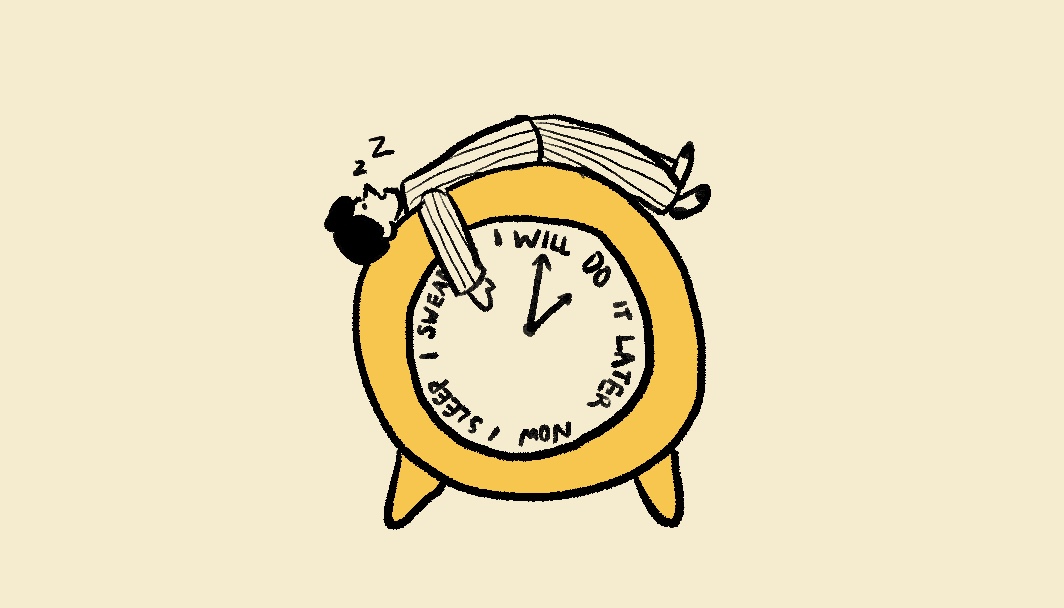For many students, procrastination is probably the one problem you will encounter the most during your studies. But think about it for a second: why do we procrastinate in the first place? Where does it come from and why do we allow it to happen?
Procrastination is the act of delaying a task or a set of tasks. It stems from the term ‘Akrasia’, a concept which was thoroughly discussed by ancient Greek philosophers such as Aristotle and Socrates. Socrates explains that akrasia occurs when an individual acts against their better judgement. The main idea is that you are aware of what is best for you, but instead, you do something else.
If we are aware that accomplishing a certain action is in our best interest, then why are we pushing it aside? Is it fear? Perhaps laziness? What happens in our brains when we decide to procrastinate? Procrastination, as explained by many modern-day psychologists, could be viewed as a coping mechanism. It is a way to avoid responsibility, and reality as a matter of fact. For example, an important deadline for an assignment could be scary for a student. In hopes to perform well, many students build up anxiety. In order to get rid of this fear, they would take the easy road and, well, procrastinate. Opening up Netflix or scrolling through Instagram, avoiding the fear of confronting that important assignment. However, it is only a matter of time before you realize that the procrastination would only solve the problem temporarily, and reality starts to kick in again.
Psychologists have also explored other explanations which relate to how we as individuals perceive ourselves. There is a difference between present and future self. In practice, we tend to empathize more with our present selves rather than our future selves, and therefore, we neglect our future responsibilities. We are focused on giving ourselves instant gratification, instead of looking at our long-term goals.
As mentioned before, for many students, procrastination is a common problem among us. With upcoming assignments and exams every single term, our schedule might get a little overwhelming, and we tend to avoid them until the last moment. Therefore, these tips can be helpful when trying to overcome procrastination for a deadline.
- First of all, if you have procrastinated, don’t be too hard on yourself. Instead, try to forgive yourself. A study performed by Psychl shows that students who have procrastinated on their first exam and didn’t blame themselves for it, procrastinated less on their second exam.
- Do not catastrophize your responsibilities. We often make a huge deal of something that is not that serious in reality. The instant fear that arrives when confronting an assignment is what makes us dread it. Instead, try to convince yourself that you are bigger and greater than that exam, or that assignment, because you indeed can handle it.
- Lastly, just start. Even if you don’t feel like it, if it makes you anxious or you are not in the mood for it. Write down something, even if it is one sentence. It proves that you have made a start, and therefore, you can also get to the end
Author: Danisha Carron
Editor: Gwendolyne Cheung
Illustrator: Hahn Tran
Source Credit: https://www.washingtonpost.com/news/wonk/wp/2016/04/27/why-you-cant-help-read-this-article-about-procrastination-instead-of-doing-your-job/https://jamesclear.com/procrastination

